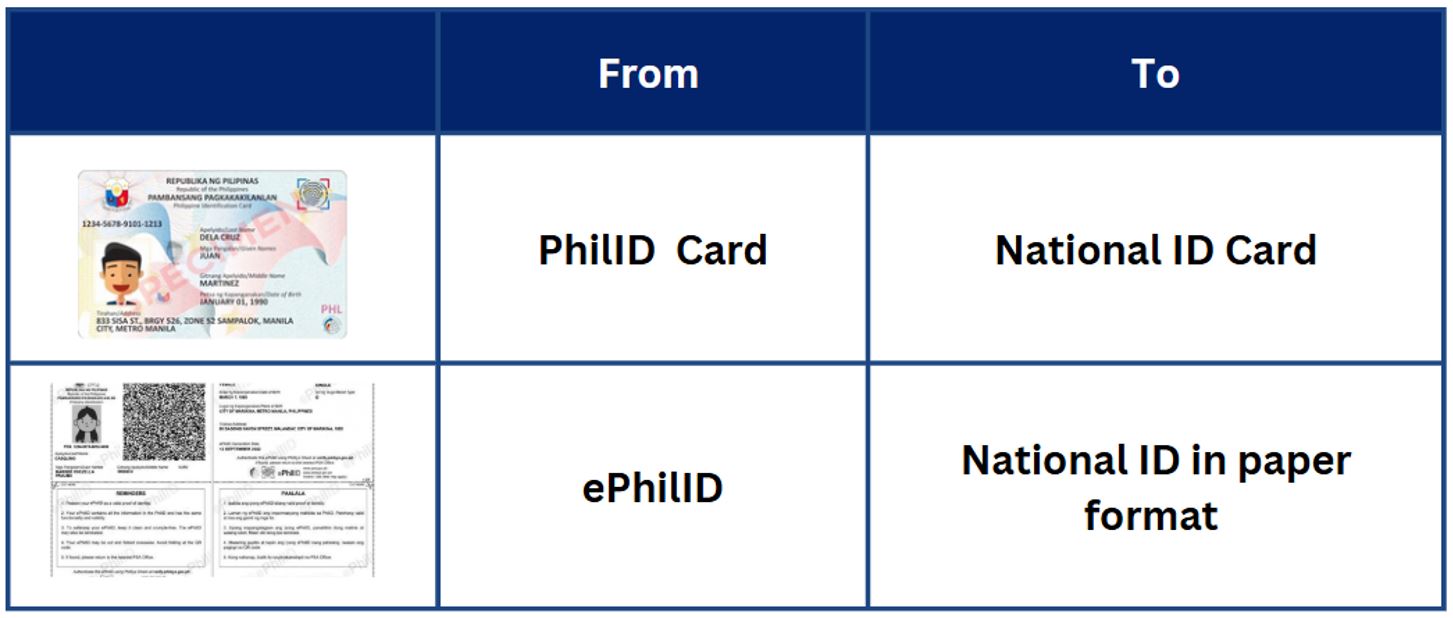
Republic Act No. 11055, commonly referred to as the Philippine Identification System Act, seeks to create a unified national identification system for all Filipino citizens and resident aliens in the Philippines.
According to PhilSys Policy and Coordination Council (PSPCC) Resolution No. 30, Series of 2024, the Philippine Identification will now be referred to as National ID. Aligned with this rebranding, the National ID will be recognized in several formats: the National ID Card, the National ID in paper format, and the Digital National ID. Since the term “National ID” is now more widely accepted and understood, this rebranding aims to encourage the public to use and embrace it more effectively.
Nevertheless, all formats of the National ID serve as valid proof of identity and can be used for both public and private transactions. It plays a crucial role in improving social service delivery and enhancing financial inclusion. As a foundational digital ID system, the National ID will revolutionize service access and delivery in the Philippines, supporting the shift to a digital economy by enabling seamless, paperless, cashless, and remote transactions. The National ID system aims to make services more accessible, reduce fraud, and promote trust in digital services.
(SGD.) AIRENE A. PUCYUTAN
Provincial Statistics Officer
NDP/KCJ
